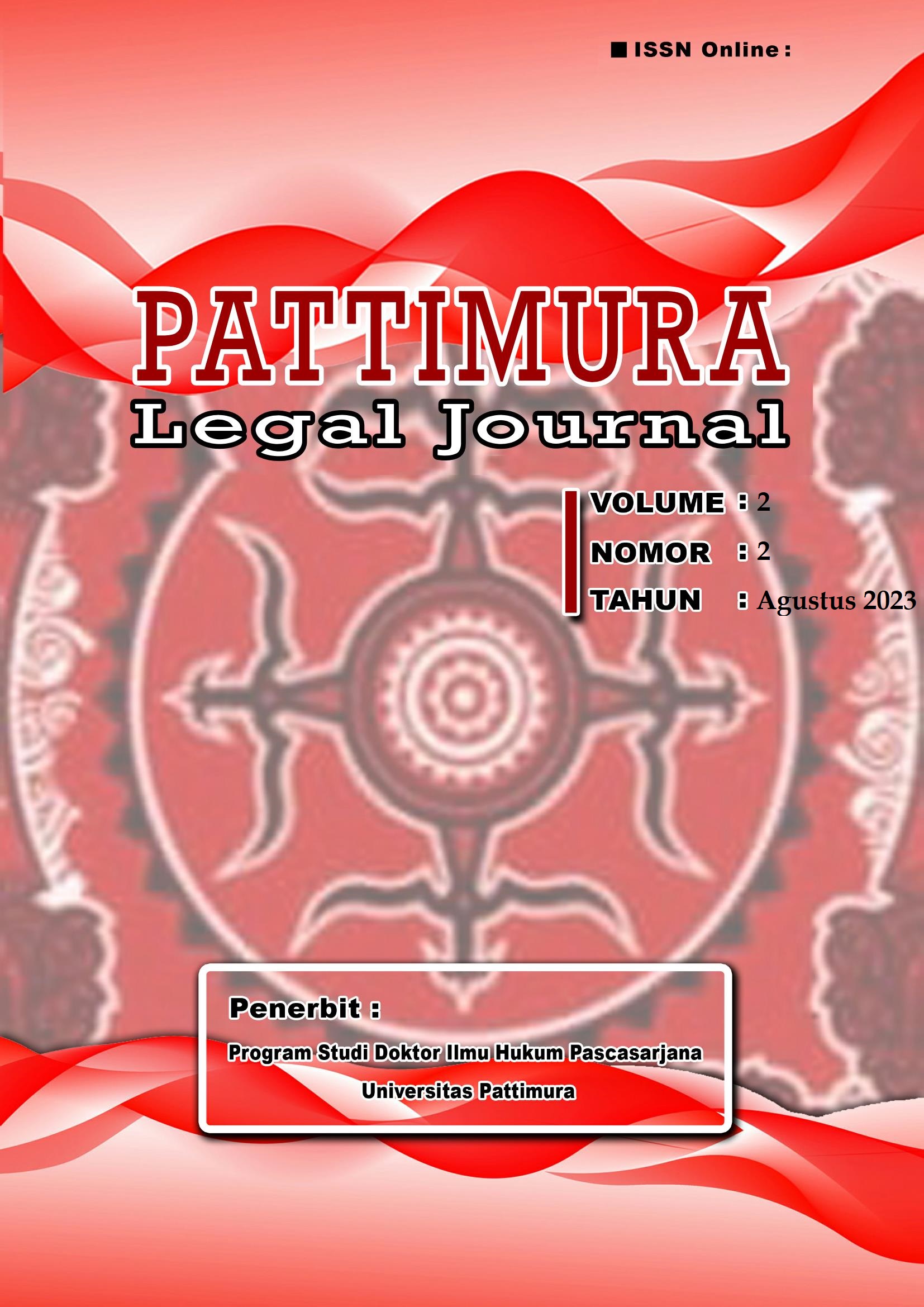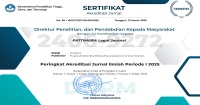Aspek Hukum Surat Tanda Nomor Kendaraan Yang Pajaknya Telah Habis Masa Berlaku Saat Dilakukan Pemeriksaan Oleh Polisi Lalu Lintas
Abstract
Introduction: The ticket is a fine imposed by the police on road users who violate the regulation. Vehicle registration certificate or STNK for short, is proof of registration and ratification of a motorized vehicle based on its registered identity and ownership. Motor Vehicle Tax is a tax levied on ownership and/or ownership of motorized vehicles.
Purposes of the Research: The traffic police have the authority to provide evidence of violations (tickets) in the form of confiscating vehicle registration certificates during motor vehicle inspections. What legal policy is followed by motor vehicle users whose Vehicle Registration Certificate has expired.
Methods of the Research: This study clearly includes normative legal with secondary data. The main problem in this study obviously is achieved by using a juridical-normative approach.
Results Originality of the Research: The results of this study were the police have the authority in terms of traffic violations such as vehicle registration tickets whose taxes have expired. All regulations regarding vehicle registration tickets by the police are regulated in the Traffic and Road Transport Law, Law no. 2 of 2002 concerning the Indonesian National Police and Government Regulation No. 80 of 2012 concerning Procedures for Inspection of Motorized Vehicles on the Road and Enforcement of Traffic and Road Transportation Violations. Legal policies that can be carried out include preventive measures that carry out traffic regulation, conduct traffic control, socialize to the public to comply with traffic regulations, increase the number of police facilities and increase patrol escort activities, especially in vulnerable and vulnerable areas. Meanwhile, for repressive efforts, namely by issuing ticket and reprimand.
Downloads
References
Buku
Andrew R. Cecil, Penegakan Hukum Lalu Lintas, Bandung, 2011.
Diana Kusumasari, Hukum Pidana, Jurnal Online Mahasiswa (Bung Pokrol), 2017.
J M Van Bemmelen dalam Bambang Poernomo, Dalam Asas-asas Hukum Pidana, Jakarta, Ghalia Indonesia, 2002.
Jhon Gilissen dan Firts Gorle, Sejarah Hukum Suatu Pengantar, Refika Aditama, Bandung, 2005.
Lilik Mulyadi, Bunga Rapai Hukum Pidana Perspektif Teoritis dan Praktik, Alumni Bandung, 2008.
M. Karjadi, Kejahatan Pelanggaran dan Kecelakaan, Politeia, Bogor, 1981.
Ramdlon Naning, Menggairahkan Kesadaran Hukum Masyarakat dan Disiplin Penegak Hukum dalan Lalu Lintas, Surabaya, Bina Ilmu, 1983.
Rinto Raharjo, Tertib Berlalu-lintas, Shafa Media, Yogyakarta, 2014.
Romli Atmasista, Teori dan Kapita Selekta Kriminologi, Refika Aditama, Bandung, 2005.
Rusli Effendy dan Poppy Andi Lolo, Asas-asas Hukum Pidana, Ujung Pandang: Umithohs Press, 1989.
Sadjijono, Seri Hukum Kepolisian Polri dan Good Governance, Laksbang Mediatama, Surabaya. 2008.
Wirjono Prodjodikoro, Asas-Asas Hukum Pidana, Bandung, Refika Aditama, 2003
Online/World Wide Web, Disertasi/Tesis/Skripsi, Dan Lain-Lain
Gusti Ngurah Alit Ardiyasa, Kajian Kriminologis Mengenai Pelanggaran Lalu Lintas yang Dilakukan oleh Anak, https://media.neliti.com/media/publications/149603-ID-kajian-kriminologismengenai-pelanggaran.pdf.
Copyright (c) 2023 Patricia Julia Abrahamsz (Author)

This work is licensed under a Creative Commons Attribution-NonCommercial 4.0 International License.
Authors who publish their manuscripts in this Journal agree to the following conditions:
- The copyright in each article belongs to the author, as well as the right to patent.
- Authors are able to enter into separate, additional contractual arrangements for the non-exclusive distribution of the journal's published version of the work (e.g., post it to an institutional repository or publish it in a book), with an acknowledgment of its initial publication in this journal.
- Authors are permitted and encouraged to post their work online (e.g., in institutional repositories or on their website) prior to and during the submission process, as it can lead to productive exchanges, as well as earlier and greater citation of published work.
- Authors have the right to self-archiving of the article (Author Self-Archiving Policy)






















